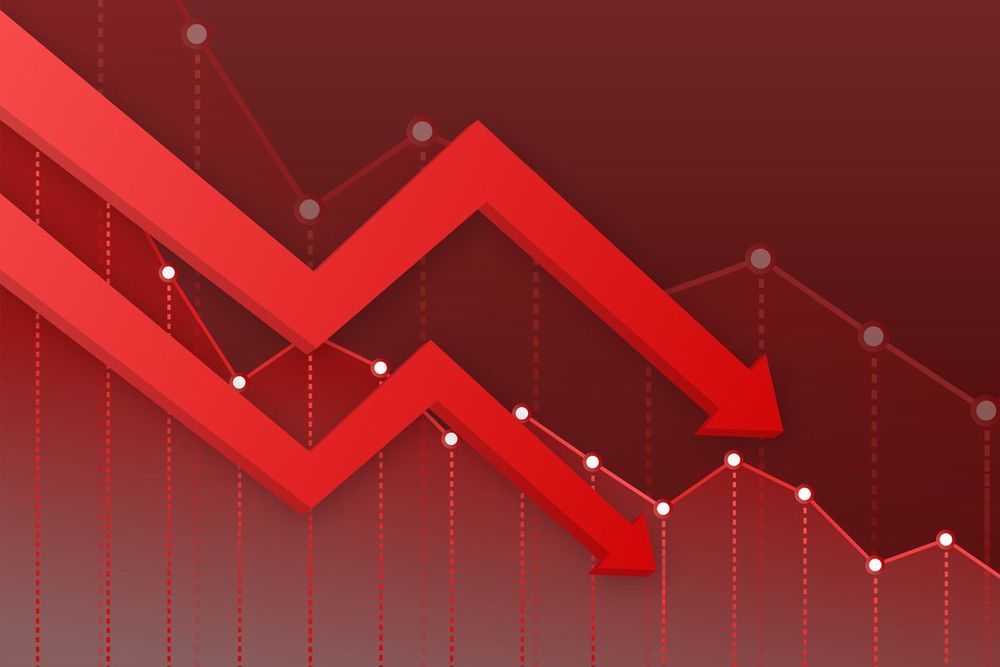
Over the past year, jobs have been in abundance. Employees have been able to quit their jobs knowing that there are numerous opportunities waiting for them. However, times may be changing. A decrease in job posts indicates a possible slowdown in the labor market. Find out what’s happening with the job market and what it means for you.
So, what exactly is going on with the labor market? The Federal Reserve is increasing interest rates to lessen the demand for labor, goods, and services. Although it’s taken some time, the interest rate hike is starting to impact the job market. According to the August JOLTS report, there were 1.1 million fewer job openings last month than in July. That’s the most significant drop since the beginning of the pandemic.
There are parts of the job market that are still in recovery. For instance, state and local government jobs had incredibly high hires for August. Other industries seemed to drop back to normal levels, while some industries have slow hires as a result of the current economy.
While it might sound like there’s not much job availability now, that’s not quite accurate. There are 4 million more job openings than there are unemployed job hunters right now. In some cases, employees are still using the market to their advantage. Fast food employees in San Francisco fought for and received a 29% raise. In some cases, employees are quitting to find better opportunities.
This year, employers added 3.5 million jobs. This is the fastest growth in 28 years, which is surprising because of the inflation rate. Currently, interest rates have risen faster than they have in 40 years. Due to the hike, it's likely that the strong market won't remain as favorable for job seekers over the next few months. Over the next several months, employers may only add 97,000 jobs per month. That's an 80% rate decrease from last year, which was an average of 487,000 jobs per month.
Economists are making another prediction. In the near future, economists expect to see a .7 percent increase in unemployment. In one year, unemployment rates may be around 4.4%, which is higher than the current 3.7%. And it's not only economists who are making this prediction. Fed officials are also predicting the same increase in unemployment
In the past, joblessness has never risen by .5% or more without a recession happening. Despite that fact, the outlook isn't bleak. In previous recessions, joblessness was much higher. Shortly after the pandemic, joblessness was up by 11.2%. During the Great Recession, it was up by 5.3%. Meanwhile, joblessness increased by 3.6% during the Great Inflation in the 80s.
We may be facing a recession, but you don't need to worry just yet. If we do have a recession, it will likely be much less devastating than previous ones.
It's one thing to understand the current statistics and the future outlook, but it's another to be in tune with why those trends are happening. Primarily, Fed tightening is the reason for the slower job growth. As interest rates rose quickly in September, economic growth slowed.
Inflation is still in play as well. In the near future, the food, transportation, and housing industries could continue to suffer. The energy and gasoline prices are likely to also remain high or increase. As a result, the Fed may need to increase its rates more. According to recent projections, the federal funds rate could be at its highest around 4.75%.it hasn't been that high since 2007.
As companies are impacted by inflation, layoffs are becoming more common. Several large corporations have announced layoffs, and more are likely to come soon. It may not be long before people are truly struggling to find jobs.
Fortunately for many job seekers, the labor market is strong right now. This is precisely why economists aren't too worried about the coming year. Although there is a slowdown, it doesn't mean there will be no jobs available. Joblessness is still low because job availability jumped up significantly over the past seven months.
As the economy continues to slow, joblessness will likely increase. But the strong market can handle a slight increase, so jobs may still be available and the effects may not be as widespread. Additionally, the high interest rates could just shift jobs from most sectors to worker supply. So, while it might be difficult to find certain jobs, others will have more availability. Economists refer to this as a soft landing.
Now that you have this knowledge, how can you prepare for a recession or a challenging job market? For one, you can find a secure job. If you don't feel as if your employer needs you or that you're in a stable industry, you should start looking for another job. There's nothing wrong with a career pivot.
Because job availability is still high, you may be able to find something in a new industry. A passion or strong skill set could make up for a lack of experience. However, when job availability decreases, it's much harder for individuals to switch to new industries.
It's also still a good time to ask your employer for a raise. If you haven't looked into current salaries for individuals in your position, spend some time researching. Your employer could be underpaying you. By learning about average salaries for people with similar experiences and skill sets, you can learn what you should be making.
If you are underpaid, you should speak with your employer. Waiting too long could leave you amid an unfavorable market, and your boss is unlikely to offer you a raise in those conditions. Set a time to speak with your employer and explain why you deserve a raise. In the event that they decline, you can start looking for a job elsewhere.
Lorem Ipsum is simply dummy text of the printing and typesetting industry. Lorem Ipsum has been.
